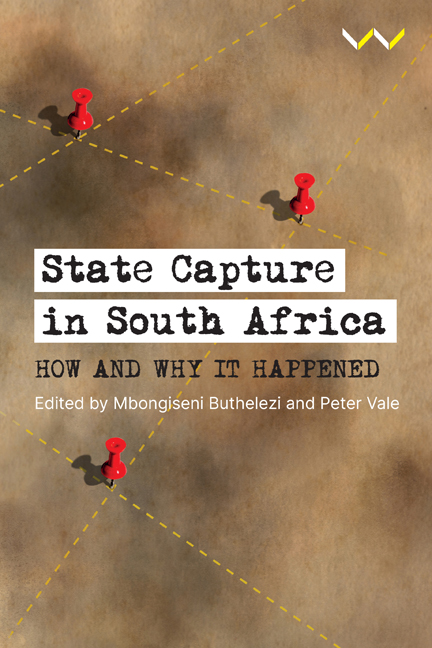Chapter 1 - Elite Formation, Factions and Violence in the Political Economy of Corruption
Published online by Cambridge University Press: 28 February 2024
Summary
In May 2017, South African president Jacob Zuma fired minister of finance Pravin Gordhan from cabinet – and unleashed a storm of protest and mobilisation. This move was widely seen as the final onslaught in a campaign to ‘capture’ the state for corrupt networks stretching across South Africa and far beyond – to Russia, China, India and Dubai. Opposition political parties and broad social movements calling themselves ‘civil society’ began to organise a campaign to remove Zuma. A split emerged within the African National Congress (ANC) as Gordhan and a network of prominent ANC leaders and veterans launched a struggle to ‘reclaim’ it. The two key Alliance partners of the ANC, the South African Communist Party (SACP) and the Congress of South African Trade Unions (Cosatu), also spoke out against Zuma's move and joined the campaign to remove him – ironically, as until then they had been castigating Gordhan for following the same ‘neoliberal’ policies as his predecessors.
Protests, public meetings and well-supported marches took place. The biggest demonstration of the post-apartheid period was estimated to have mobilised tens of thousands in a march to the Presidency in Pretoria, led by opposition political parties, with the Economic Freedom Fighters (EFF) in the lead. Political rivals, such as the EFF, the liberal opposition Democratic Alliance, the SACP, and some social movements and NGOs, joined hands in what came to be seen as a national crisis. In parliament, opposition parties served notice of a motion of no confidence in the president – the fourth such motion over the previous two years. However, this time it attracted unprecedented interest because of speculation that a number of ANC MPs would support it. Few did, and for a few months, Zuma survived.
Ultimately, however, the turbulence led to the election in December by a narrow margin of Cyril Ramaphosa as president of the ANC, the recall by the ANC of Jacob Zuma as president of South Africa, his replacement in January 2018 by Ramaphosa, and the latter's announcement of a ‘New Dawn’ for South Africa.
The transition from Thabo Mbeki to Jacob Zuma as ANC president in Polokwane in 2007 and the subsequent recall of Mbeki as South African president in 2008 likewise had been accompanied by intense internal struggles and mobilisations.
- Type
- Chapter
- Information
- State Capture in South AfricaHow and Why It Happened, pp. 19 - 38Publisher: Wits University PressPrint publication year: 2023



